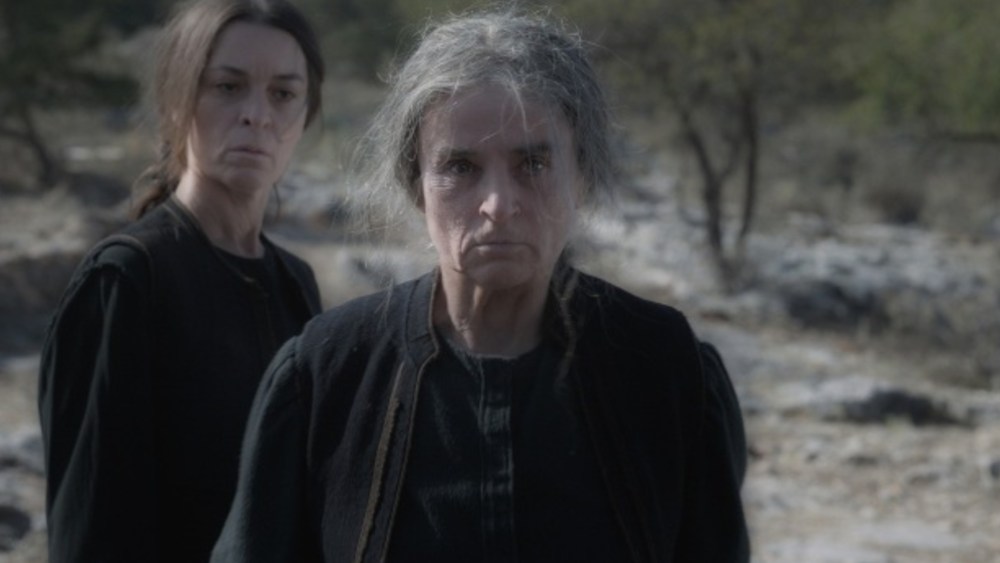Greece Selects ‘Murderess’ for International Feature Oscar Race
After a scandal-plagued month that called the legitimacy of the Greek Oscar selection process into question and threatened to torpedo the country’s chances at the 97th Academy Awards, Greece has selected Eva Nathena’s historical drama “Murderess” for the international feature film race. Out of the 26 eligible films, “Murderess” is the only one left standing, after the remaining competitors withdrew from the selection process in protest.
In a brief statement, Deputy Minister of Culture Iasonas Fotilas announced the selection of “Murderess,” saying the decision was reached by a “quorum” of industry professionals on the evening of Sept. 10, and that the six-person committee determined that the film “meets the requirements for a dynamic presence” in the upcoming Oscar race.
The Greek filmmaking community was quick to voice its outrage, with commenters describing the selection process as a “disgrace,” a “theater of the absurd” and an “absolute debacle,” and one social media user wryly posting: “‘Murderess’ competed against itself and came out victorious.” In a scathing commentary for news weekly Documento, meanwhile, columnist Chrisoula Papaioannou sounded off on “the killer of the Oscars, the ‘Murderess’ of dignity.”
The announcement brought to a close a nearly six-week fiasco that began when the four members of Greece’s Oscar selection committee were abruptly canned just two days after their appointment. Government officials insisted the four industry professionals — film critic Leda Galanou, actress Kora Karvounis, screenwriter Kallia Papadakis and director Vassilis Kekatos — had been notified of their selection “by mistake” before their participation had been “finalized.”
A replacement committee was quickly announced, with Greek industry reps crying foul over the ministry’s “unacceptable and distressing” handling of the situation. Several members of that replacement committee subsequently stepped down, including Asimina Proedrou, director of last year’s Greek Oscar submission “Behind the Haystacks,” who while announcing her resignation on Facebook said she “refuse[d] to legitimize” the government’s bungling of the selection process.
With the Academy’s Oct. 2 submission deadline for the international feature film race looming, the Greek culture ministry this week appointed two new members, U.S.-based cinematographer Anastasios Michos and composer Nikos Platyrachos, to fill out the six-person committee.
Just hours after “Murderess” was selected to represent Greece in the international feature film Oscar race, however, both men tendered their resignations, renewing questions about the legitimacy of the process and raising fresh allegations about the swiftness with which the latest selection committee was composed.
Reached by Variety, Michos described the timing of his resignation as “unfortunate” but declined to comment further, while Platyrachos could not be reached for comment. In his announcement letter, Fotilas noted that the committee “thanked them for their service.”
Based on the celebrated novel by Alexandros Papadiamantis, “Murderess” takes place on a remote Greek island at the turn of the 20th century, where a young woman struggles to survive according to the dictates of her patriarchal society.
The film premiered at the 64th Thessaloniki Intl. Film Festival, where it won six awards, including the Fipresci Award for best Greek film at the festival and the audience award for the Meet the Neighbors+ competition. It also scooped five statues at Greece’s Iris Awards, including best cinematography for DoP Panagiotis Vasilakis.
The film received largely positive reviews in Greece, where Christos Mitsis of arts and culture website Athinorama praised its “evocative atmosphere, composed direction and an exuberant performance by Karyofyllia Karabeti,” while Thodoris Koutsogiannopoulos of culture weekly Lifo singled out the “dramaturgical consistency and visual dedication” of the “tight-knit character thriller,” describing it as “tight in duration and airtight in style.”
Variety reached out to producers Costas Lambropoulos and Dionyssis Samiotis, of Athens-based production outfit Tanweer, for comment on why the filmmakers decided not to withdraw “Murderess” from consideration, given the widespread irregularities in the selection process and the similar decision made by their Greek colleagues. Lambropoulos said he was currently engaged with other projects and unable to comment. Samiotis did not reply to several texts. Nathena could not be reached.
Speaking to Variety on Thursday night, deputy minister Fotilas declined to make any additional statements about the controversy or comment on why he refused to heed industry calls to scrap this year’s selection process.
“My function as a Deputy Minister of Culture in the matter of the selection process about Greece’s participation in the Oscars focuses mainly on the appointment of the committee members and the due process,” he said. “It is the committee’s duty and responsibility to determine if the movie in question covers the criteria to represent our country.
“From this point on, our role as Greek Ministry of Culture is to empower the journey of [‘Murderess’],” he continued. “Needless to say that this year’s selection process emphasizes that we need to rethink the whole concept for the future.”
That statement echoed calls by the Hellenic Film Academy to have the selection process handed over to the film body and its nearly 700 members, a move the group has long championed. Last month, the academy also penned an open letter asking for this year’s selection process to be scrapped and for Greece not to submit a film for the international feature film race at next year’s Academy Awards, which will take place on March 3.
“This process needs to change. And as the minister said, it’s obvious that this whole mess proves that it’s the right way to go,” said Hellenic Film Academy president Lefteris Charitos. “It’s a little bit of a one-man rule, in a way. We had one film left, a weak committee handpicked by the minister and no real process of selection between the 26 films that were initially submitted. Which, to me, is ridiculous. It seems like there was no real process of selection and this has created a breach of confidence.”
He continued: “I think it would be a bit more honest if all films withdrew and we went normally next year — as a country, as a community of people working in cinema.”


